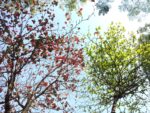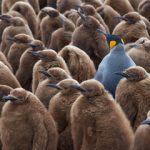This week, we learn about a huge financial commitment to the European Open Science Cloud, the challenge of hunting for full-text articles and the Sci-Hub effect. We also look at the theme of this year’s Peer Review Week and hear about a case of thesis poaching. Finally, we sing the praises of self-criticism.
European Open Science Cloud to receive €950 million investment via Science | Business | 2-minute read
The European Open Science Cloud (EOSC) – the European Union’s federated online environment for sharing, processing and re-using research data – will receive an injection of €950 million over the next 10 years from a new public–private partnership. The EOSC will give researchers access to open and robust data from across Europe, which should lead to better connections between researchers in different countries. Since 2015, the EOSC has received €320 million for pilot projects and to build the digital infrastructure required for this ambitious project.
The hunt for full-text articles via sOApbox | 5-minute read
How many times have you clicked through a journal’s web pages trying to find the PDF of that one vital paper, only to find you’ve gone in a circle and come back to the page you started on? In this article, Sally Rumsey (Open Access Expert at Jisc and cOAlition S) and Danny Kingsley (Associate Librarian, Content and Digital Library Strategy at Flinders University) document some of their own lengthy hunts for full-text articles. They also discuss those tricky ‘variable access’ articles, access to which seems to change depending on the device used, whether the articles are accessed directly or via the journals’ home pages, and other confusing inconsistencies. Their struggles to find full-text articles highlight the technical problems with journal access barriers.
The Sci-Hub effect via PsyPost | 3-minute read
The number of downloads of an article from the controversial shadow library Sci-Hub is a predictor of future citations of that article, finds a recent paper. The authors of the paper looked at 8661 articles published in 12 journals from diverse research fields between September 2015 and February 2016 and found that about half of the articles had been downloaded from Sci-Hub and half had not. Their study also showed that articles that had been downloaded from Sci-Hub were cited 1.72 times more frequently than articles that had not been downloaded from Sci-Hub. Read the original article here.
Announcing this year’s Peer Review Week theme via The Scholarly Kitchen | 6-minute read
Following a community vote, the theme for Peer Review Week 2021 will be ‘Identity in Peer Review’. Peer Review Week, which is taking place between 20 and 24 September this year, is an annual global event celebrating peer review and its role in maintaining research quality. This year’s event will feature various virtual activities exploring diversity, equity and inclusion in peer review, peer review blinding and how to identify non-peer-reviewed manuscripts.
Thesis poaching in the depths of Amazon.com via LSE Impact Blog | 6-minute read
Last year, the doctoral theses of several researchers were found for sale on an Amazon third-party seller page, without the permission of the authors. The theses had all been deposited in – and then poached from – the Open University’s open institutional repository under non-commercial Creative Commons licences. The third-party seller was clearly in breach of the licence, and the page has since been removed by Amazon, showing that open access is still a safe option for students and researchers when appropriate Creative Commons licences are used.
In praise of criticism via Nature | 4-minute read
This year, Nicholas Holmes (Assistant Professor in the School of Psychology at the University of Nottingham) started tweeting the worst things about each of his publications. Rather than being disheartened, Nicholas found this period of self-reflection enlightening, and he encourages other researchers to become their own critics. He also believes that the transparency of the open science movement lends itself well to productive self-criticism. After all, “a scientific record that includes only successes is incomplete”.
We at Open Pharma would like to continue to encourage all our readers to look after themselves and their community and to continue to follow advice from their country’s government and health organizations.
Coronavirus mental health and well-being resources:






